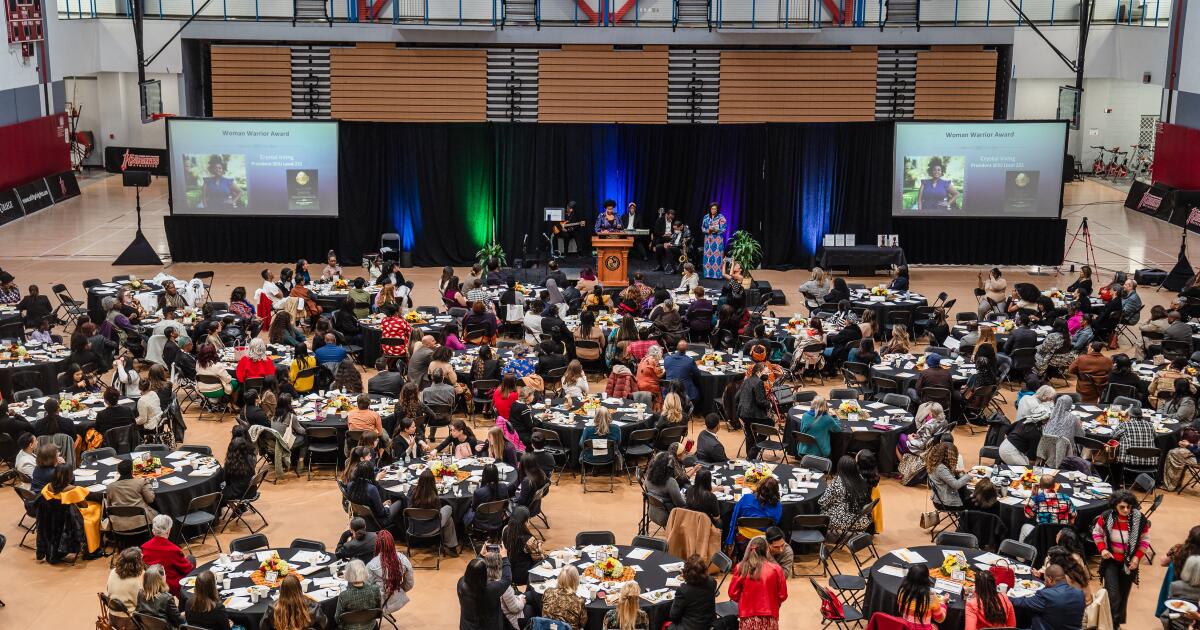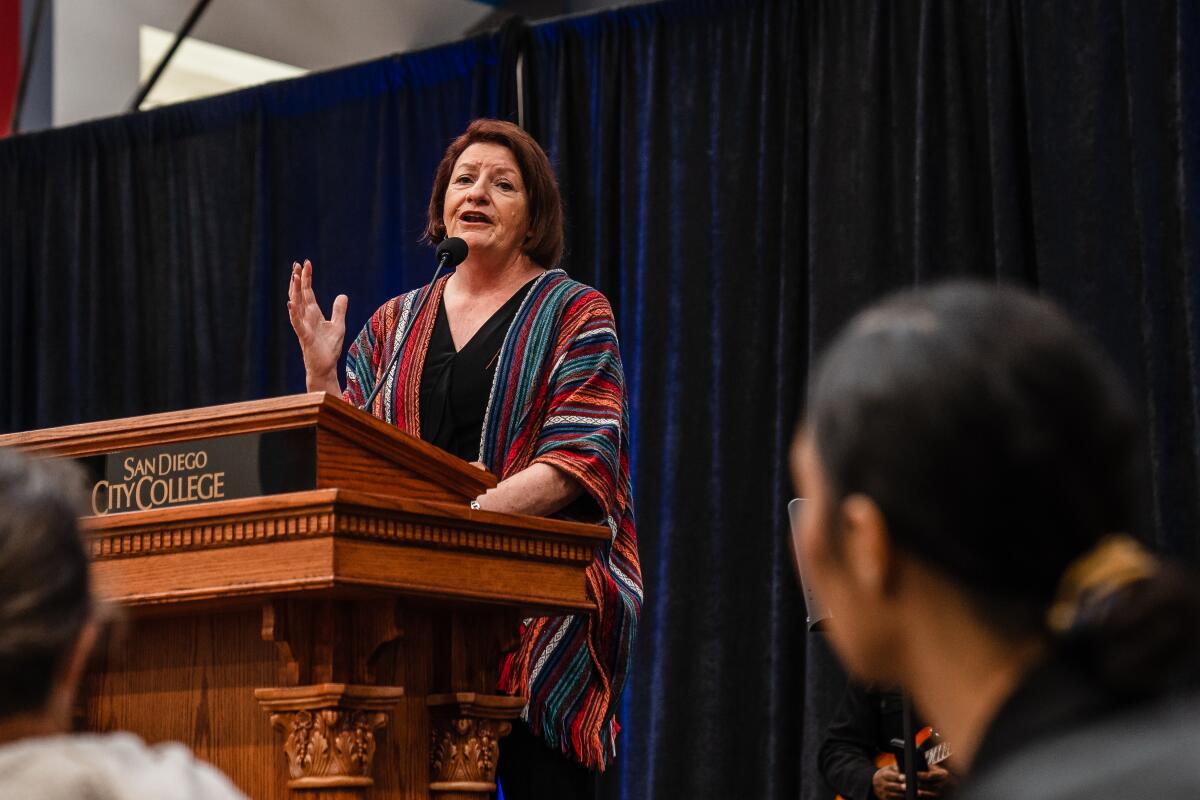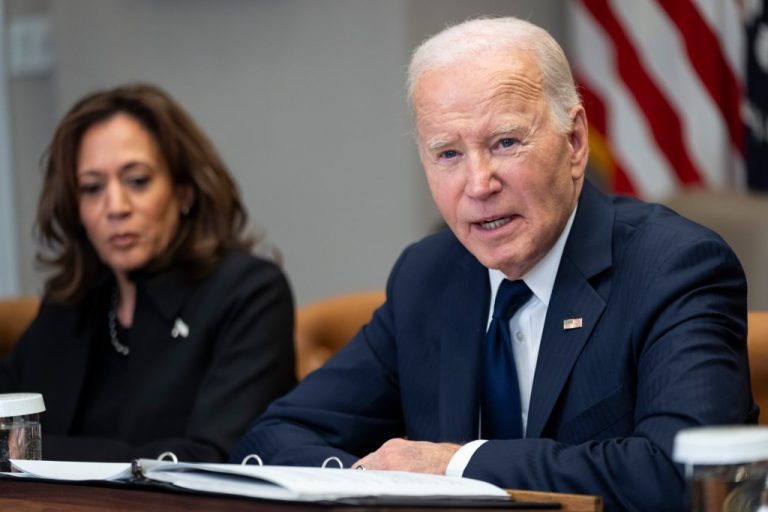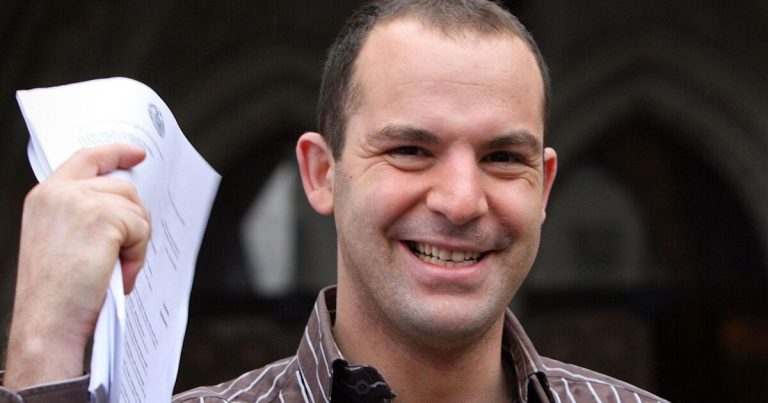
In the summer of 1946, a pregnant woman was turned away from an El Paso, Texas, hospital because she was Black.
Delayed care almost led to the deaths of the mother and baby. But the little girl both survived and grew up to become a member of Congress.
“I had no option from Day 1 other than to fight for justice,” U.S. Representative Barbara Lee told a crowd of hundreds at San Diego City College on Saturday.

Congresswoman Barbara Lee at the 6th Annual Women of Color Roar Breakfast: Our Time – Sixty Years of Triumph at San Diego City College’s Harry West Gym on Feb. 3, 2024.
(Ariana Drehsler / For The San Diego Union-Tribune)
Lee shared the story as part of the 6th annual Black History Month breakfast hosted by Women of Color Roar Media, which regularly gathers a who’s who of female leaders from around California, especially Black women.
The event isn’t a campaign rally — Roar Media is a nonprofit — but it can offer a platform to candidates in significant races. That includes Lee, who’s running to represent California in the U.S. Senate and received two standing ovations before accepting an award.
“We do not endorse candidates,” Angela de Joseph, Roar Media’s founder, said from the stage. But, she added, it was important to “love those who are loving you.”
State Sen. Toni Atkins, who’s vying to be California’s first female governor, was one of several speakers who pushed fellow leaders to follow through on reparations for Black residents in the wake of landmark recommendations from a state task force.
People “just think of reparations as a check in the mail to someone,” she said. “That’s not nearly enough and that’s not exactly what we’re talking about.”

Toni Atkins, president pro tem of the California Senate at the 6th Annual Women of Color Roar Breakfast: Our Time – Sixty Years of Triumph at San Diego City College’s Harry West Gym on Feb. 3, 2024.
(Ariana Drehsler / For The San Diego Union-Tribune)
Atkins argued that the state needed to reverse a longstanding lack of investment in lower-income and minority communities, and multiple people drew a straight line from discriminatory housing policies to the recent flooding in southeastern San Diego.
Last month’s historic storm hit homes and businesses near Chollas Creek particularly hard, despite years’ worth of official warnings and complaints from residents.
“It is a tragedy, not just because there was a flood,” Secretary of State Shirley Weber said Saturday, “it was a tragedy of neglect.”
Mayor Todd Gloria made a similar point earlier in the morning when he pledged to reverse the “past decisions that have perpetuated inequity and systemic racism in our city.”

The 6th Annual Women of Color Roar Breakfast: Our Time – Sixty Years of Triumph at San Diego City College’s Harry West Gym on Feb. 3, 2024.
(Ariana Drehsler / For The San Diego Union-Tribune)
The County Board of Supervisors recently set aside $10 million to help affected residents, and Chair Nora Vargas grew emotional as she discussed how meaningful it was to have Monica Montgomery Steppe as a new colleague.
“It has felt a little lonely the last few years,” said Vargas, who is the first Latina to chair the board. Montgomery Steppe is the county’s first Black supervisor.
One goal of the breakfast is to connect local officials with students interested in running for office or other leadership roles, and several high schools and colleges were represented.
“It was amazing to be surrounded by a bunch of educated, powerful women,” said Kellyn Gonzalez, a senior at Point Loma Nazarene University. Gonzalez was especially moved to hear from Barbara Lee, who she’d studied in class. “Just seeing the resilience of the people before me is so inspiring.”

Kelly Gonzalez, 21 years old, a student at Point Loma Nazarene University at the 6th Annual Women of Color Roar Breakfast: Our Time – Sixty Years of Triumph at San Diego City College’s Harry West Gym on Feb. 3, 2024.
(Ariana Drehsler / For The San Diego Union-Tribune)
Amen Etefa, a sophomore at the same school, said she was struck by Weber, the secretary of state, who warned that democracy weakens when residents don’t vote.
“Even though it’s been so many years, we’re still fighting for those rights,” Etefa said.
The Associated Press contributed to this report.






